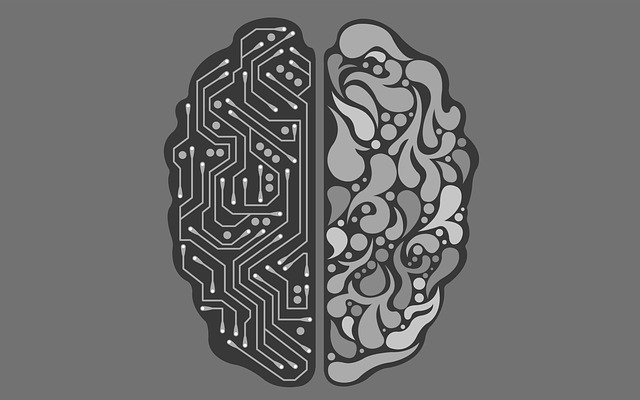I Need Help. Drug Rehab, Anyone?
Drug addiction is a pervasive issue affecting individuals and communities worldwide. The journey towards recovery often starts with drug rehabilitation, a comprehensive process designed to address the physical, emotional, and psychological aspects of addiction. In this article, we will delve into the intricacies of drug rehab, exploring its types, methodologies, challenges, and the transformative impact it can have on lives. Click here to find more how to buy 3-MMC for sale.
Types of Drug Rehab Programs
Inpatient Rehab
Inpatient rehabilitation involves a residential setting where individuals stay for a specific duration, receiving 24/7 care and support. This immersive environment ensures a focused and controlled approach to recovery.
Outpatient Rehab
Outpatient programs allow individuals to receive treatment while living at home. This flexibility is suitable for those with less severe addiction issues who can maintain daily responsibilities.
Residential Treatment
Residential treatment combines aspects of inpatient and outpatient rehab, providing a structured environment while allowing some freedom. This approach is effective for various addiction levels.
The Rehabilitation Process
Assessment and Evaluation
The journey begins with a thorough assessment to understand the individual's unique needs. Evaluations help tailor a personalized treatment plan for the best outcomes.
Detoxification
Detox is a critical phase where the body eliminates the substance. Medical supervision ensures safety and helps manage withdrawal symptoms.
Therapy and Counseling
Various therapeutic approaches, such as Cognitive-Behavioral Therapy (CBT) and Motivational Enhancement Therapy (MET), address the psychological aspects of addiction.
Aftercare and Follow-up
Post-rehabilitation, aftercare programs provide ongoing support and resources, reducing the risk of relapse.
Common Therapies Used in Drug Rehab
Cognitive-Behavioral Therapy (CBT)
CBT addresses distorted thinking patterns and behaviors, promoting positive changes and coping strategies.
Dialectical Behavior Therapy (DBT)
DBT combines cognitive-behavioral techniques with mindful awareness, helping individuals regulate emotions and improve interpersonal relationships.
Motivational Enhancement Therapy (MET)
MET focuses on enhancing motivation and commitment to change, fostering a positive mindset towards recovery.
Challenges in Drug Rehab
Stigma Associated with Rehab
Overcoming societal stigma is crucial for individuals seeking help. Education and awareness play pivotal roles in dismantling stereotypes.
Relapse Prevention
Developing effective strategies to prevent relapse is an ongoing challenge, requiring continuous support and monitoring.
Overcoming Withdrawal Symptoms
The physical and mental challenges of withdrawal can be daunting. Comprehensive care and medical supervision are essential during this phase.
Success Stories and Testimonials
Real-life Accounts of Rehabilitation
Sharing success stories creates hope and inspiration, showcasing that recovery is possible with dedication and support.
Positive Impacts on Lives
Rehabilitation not only addresses addiction but also leads to positive transformations in relationships, careers, and overall well-being.
Choosing the Right Rehab Center
Factors to Consider
Factors such as location, treatment approaches, and facility amenities play a crucial role in choosing the right rehab center.
Accreditation and Licensing
Ensuring that the rehab center is accredited and licensed guarantees adherence to industry standards and ethical practices.
Treatment Approaches
Understanding the various treatment modalities offered helps individuals make informed decisions about their recovery journey.
The Role of Family and Support Systems
Importance of Family Involvement
Incorporating family into the recovery process strengthens the support system and enhances the chances of long-term success.
Building a Support Network
Community support groups and counseling services contribute to a robust network that aids in the recovery journey.
Holistic Approaches in Drug Rehab
Incorporating Mind-Body Practices
Holistic approaches, including mindfulness and yoga, address the connection between mental and physical well-being.
Nutrition and Exercise
A balanced diet and regular exercise promote overall health and aid in the recovery process.
Addressing Dual Diagnosis
Co-occurring Mental Health Disorders
Dual diagnosis recognizes the intersection of substance abuse and mental health issues, ensuring a comprehensive treatment plan.
Integrated Treatment Plans
Coordinated efforts between addiction specialists and mental health professionals lead to integrated and effective treatment strategies.
The Cost of Drug Rehab
Insurance Coverage
Understanding insurance options and coverage for addiction treatment helps alleviate financial concerns.
Financing Options
Rehabilitation centers often provide financing options or sliding scale fees to accommodate different financial situations.
Government Initiatives and Policies
Support for Addiction Treatment
Government initiatives and policies play a vital role in supporting addiction treatment programs and increasing accessibility.
Legal Framework
Legal frameworks address ethical concerns, ensuring the protection and rights of individuals seeking rehabilitation.
Evolving Trends in Drug Rehab
Technology Integration
Innovations such as teletherapy and digital monitoring enhance accessibility and effectiveness of rehab programs.
Personalized Treatment Plans
Tailoring treatment plans to individual needs using advanced assessments leads to more targeted and successful outcomes.
Impact of COVID-19 on Drug Rehab
Challenges Faced by Rehab Centers
The pandemic posed challenges, including limited in-person sessions and increased mental health concerns, requiring adaptability in rehab approaches.
Innovative Solutions
Virtual support groups, online therapy, and digital tools emerged as innovative solutions to overcome the limitations imposed by the pandemic.
Conclusion
In conclusion, drug rehab is a transformative journey that addresses not only the physical aspects of addiction but also the intricate psychological and emotional components. Seeking help is a courageous step towards a healthier, more fulfilling life. By understanding the types of rehab, therapeutic approaches, and support systems available, individuals can embark on a path to recovery with confidence.
FAQs (Frequently Asked Questions)
-
How long does drug rehab typically last?
- The duration varies based on individual needs, but programs commonly range from 28 to 90 days.
-
Is inpatient rehab more effective than outpatient programs?
- Effectiveness depends on the severity of addiction; both have successful outcomes when tailored to the individual.
-
Are there alternative therapies offered in rehab?
- Yes, many rehab centers incorporate alternative therapies like art therapy, equine therapy, and acupuncture.
-
What role does family play in the recovery process?
- Family involvement is crucial for emotional support and creating a stable environment post-rehab.
-
Can rehab help with dual diagnosis conditions?
- Yes, integrated treatment plans address both substance abuse and co-occurring mental health disorders.
